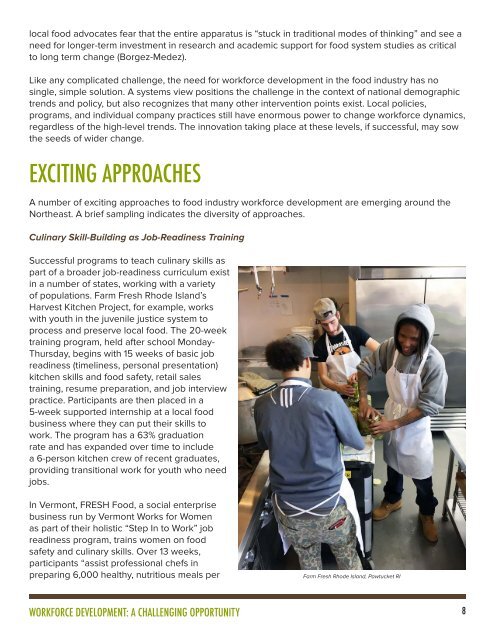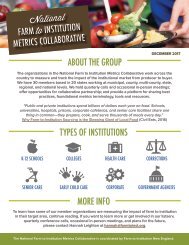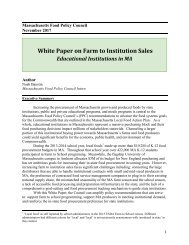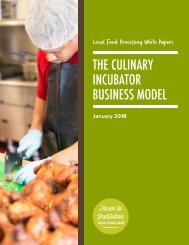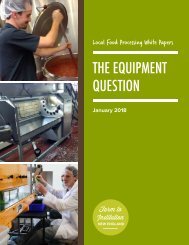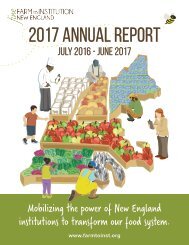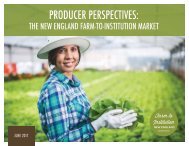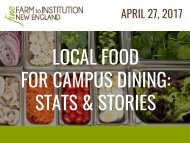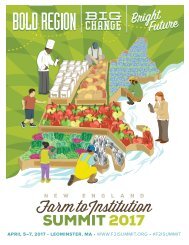FINE Workforce Dev White Paper
You also want an ePaper? Increase the reach of your titles
YUMPU automatically turns print PDFs into web optimized ePapers that Google loves.
local food advocates fear that the entire apparatus is “stuck in traditional modes of thinking” and see a<br />
need for longer-term investment in research and academic support for food system studies as critical<br />
to long term change (Borgez-Medez).<br />
Like any complicated challenge, the need for workforce development in the food industry has no<br />
single, simple solution. A systems view positions the challenge in the context of national demographic<br />
trends and policy, but also recognizes that many other intervention points exist. Local policies,<br />
programs, and individual company practices still have enormous power to change workforce dynamics,<br />
regardless of the high-level trends. The innovation taking place at these levels, if successful, may sow<br />
the seeds of wider change.<br />
EXCITING APPROACHES<br />
A number of exciting approaches to food industry workforce development are emerging around the<br />
Northeast. A brief sampling indicates the diversity of approaches.<br />
Culinary Skill-Building as Job-Readiness Training<br />
Successful programs to teach culinary skills as<br />
part of a broader job-readiness curriculum exist<br />
in a number of states, working with a variety<br />
of populations. Farm Fresh Rhode Island’s<br />
Harvest Kitchen Project, for example, works<br />
with youth in the juvenile justice system to<br />
process and preserve local food. The 20-week<br />
training program, held after school Monday-<br />
Thursday, begins with 15 weeks of basic job<br />
readiness (timeliness, personal presentation)<br />
kitchen skills and food safety, retail sales<br />
training, resume preparation, and job interview<br />
practice. Participants are then placed in a<br />
5-week supported internship at a local food<br />
business where they can put their skills to<br />
work. The program has a 63% graduation<br />
rate and has expanded over time to include<br />
a 6-person kitchen crew of recent graduates,<br />
providing transitional work for youth who need<br />
jobs.<br />
In Vermont, FRESH Food, a social enterprise<br />
business run by Vermont Works for Women<br />
as part of their holistic “Step In to Work” job<br />
readiness program, trains women on food<br />
safety and culinary skills. Over 13 weeks,<br />
participants “assist professional chefs in<br />
preparing 6,000 healthy, nutritious meals per<br />
Farm Fresh Rhode Island, Pawtucket RI<br />
WORKFORCE DEVELOPMENT: A CHALLENGING OPPORTUNITY<br />
8


